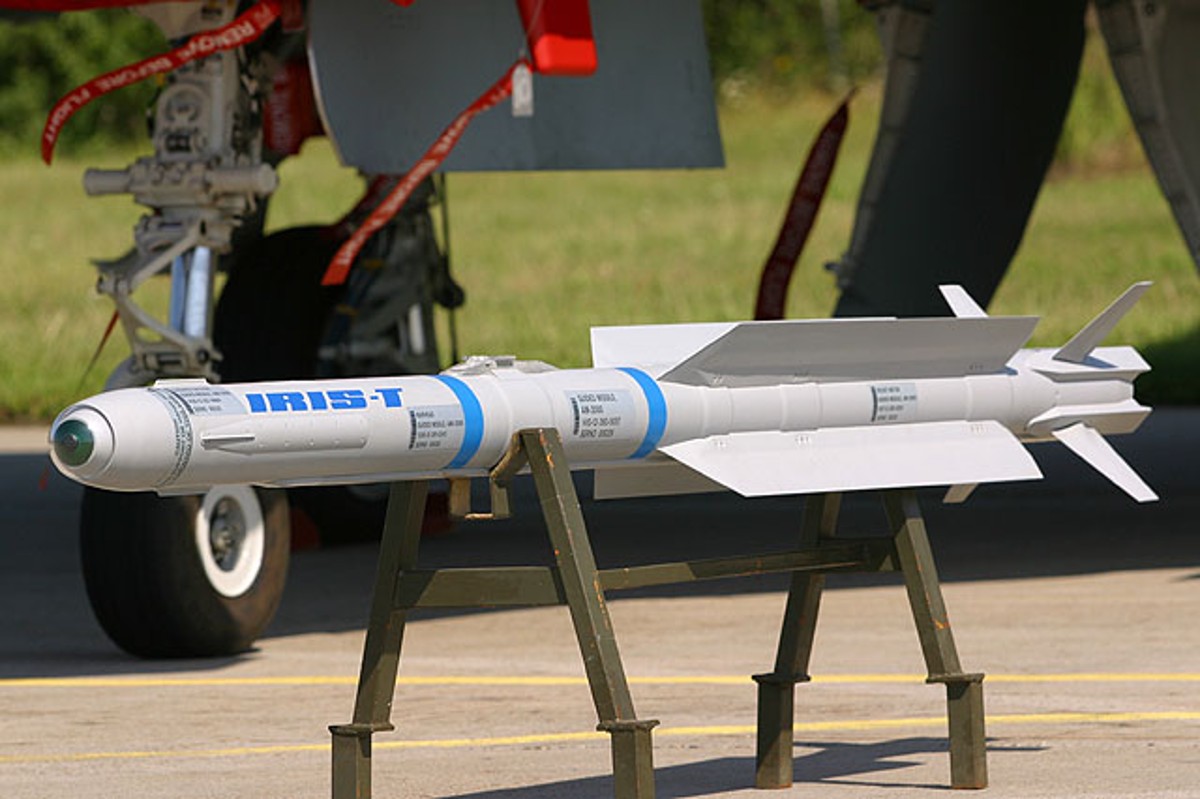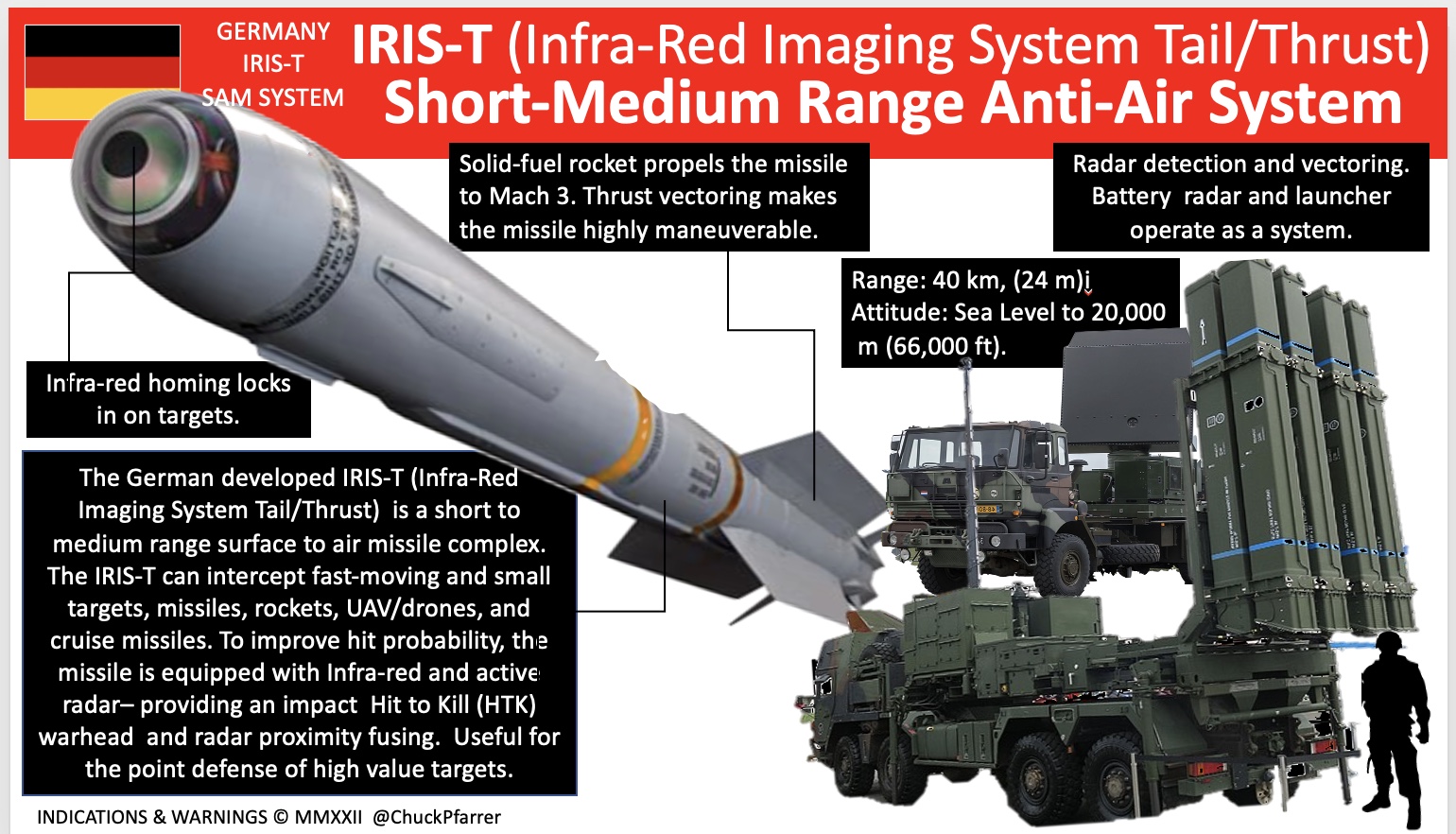According to a report by Business Insider, the Bundeswehr, Germany’s armed forces, lost an Iris-T missile, sparking serious concerns about the crucial technology being compromised.
The incident of the lost Iris-T missile reportedly came to light a few days ago at a barracks in North Rhine-Westphalia, where construction work was taking place.
During the routine weapon loading, soldiers discovered a difference between the digital inventory and the actual number of missiles.
The Bundeswehr now suspects that the missing missile may have been inadvertently loaded onto a container ship bound for the USA, where the Air Force conducts regular exercises.
In such a scenario, it is believed that the missile is not armed with ammunition or fuel, mitigating immediate safety risks. The report did not specify whether the misplaced missile is an air-to-air or ground defense surface-to-air variant.
Yet, the loss has raised significant concerns because the advanced encryption technology in the missile’s navigation system, if compromised, could pose a security risk.

Each Iris-T guided missile is valued at approximately €250,000 ($271,000). The report said the German Defense Ministry stated that no Iris-T guided missile was missing.
The report, citing a source, further added that targeted theft was unlikely given the missile’s considerable weight. Nonetheless, the latest development adds to a string of security lapses within the Bundeswehr.
In February 2017, thieves infiltrated a military facility in northern Germany, stealing weapons from a Fuchs (Fox) armored personnel carrier. The same week, the then Defense Minister Ursula von der Leyen called for a more efficient reporting system for such incidents and potential threats.
Compounding the issue further, a 2018 report revealed significant theft of assault rifles, pistols, and ammunition from the Bundeswehr over the years. In 2020, a confidential government document disclosed that tens of thousands of ammunition rounds had vanished from German military arsenals since 2010.
The missile loss underscores ongoing security challenges within the Bundeswehr and highlights the urgent need for stringent oversight and improved inventory management to prevent future incidents.
Concerns For Ukraine?
The possibility of the missile falling into the wrong hands remains a serious issue, particularly as the Iris-T is also utilized in Ukraine, raising worries about potential Russian access to sensitive technology.
The Bundeswehr has so far supplied four Iris-T SLM/SLS air defense systems and accompanying missiles to Ukraine. The system has demonstrated satisfactory performance in the ongoing conflict in Ukraine, resulting in a notable uptick in both its demand and popularity.
In September 2023, Diehl Defense, the system’s manufacturer, announced a substantial surge in production to meet the escalating demand resulting from Russia’s action in Ukraine.
At the time, Harald Buschek, the Chief Program Officer at Diehl Defense, underscored the system’s effectiveness by pointing out that Ukrainian air defense units had achieved remarkable success, having targeted and neutralized over 110 targets using the German Iris-T air defense system since its initial deployment in October 2022.
Buschek elaborated on the system’s track record. He highlighted that the majority of these targets comprised Russian cruise missiles, particularly the Kalibr, against which the Iris-T demonstrated an exceptional success rate of 100 percent.

He commended the skill and proficiency of Ukrainian operators, emphasizing their ability to maintain a perfect hit rate in defending Kyiv.
Also, the system demonstrated its efficacy by repelling an assault on Kyiv in early 2023, intercepting 13 Russian cruise missiles simultaneously.
Diehl Defense has outlined ambitious plans to scale up production operations. By 2025, it aims to manufacture at least eight systems annually, a significant increase from the three to four units produced in 2023.
In addition to the launchers, the German manufacturer is scaling up the manufacture of Iris-T missiles and will produce 450 to 500 missiles yearly by 2024.
The commendation and recognition for the Iris-T system extends beyond the manufacturing company, as Ukrainian operators have hailed it as a game-changing defense mechanism against Russia’s relentless drone and missile assaults.
The Ukrainian military has proclaimed that the Iris-T system effectively neutralized every incoming threat during its maiden operational deployment — a testament to its reliability and effectiveness, as reported by the EurAsian Times.
An IRIS-T operator described the German system as a cutting-edge, potent, and versatile defense asset that effectively intercepted various threats, particularly cruise missiles.
- Contact the author at ashishmichel(at)gmail.com
- Follow EurAsian Times on Google News




